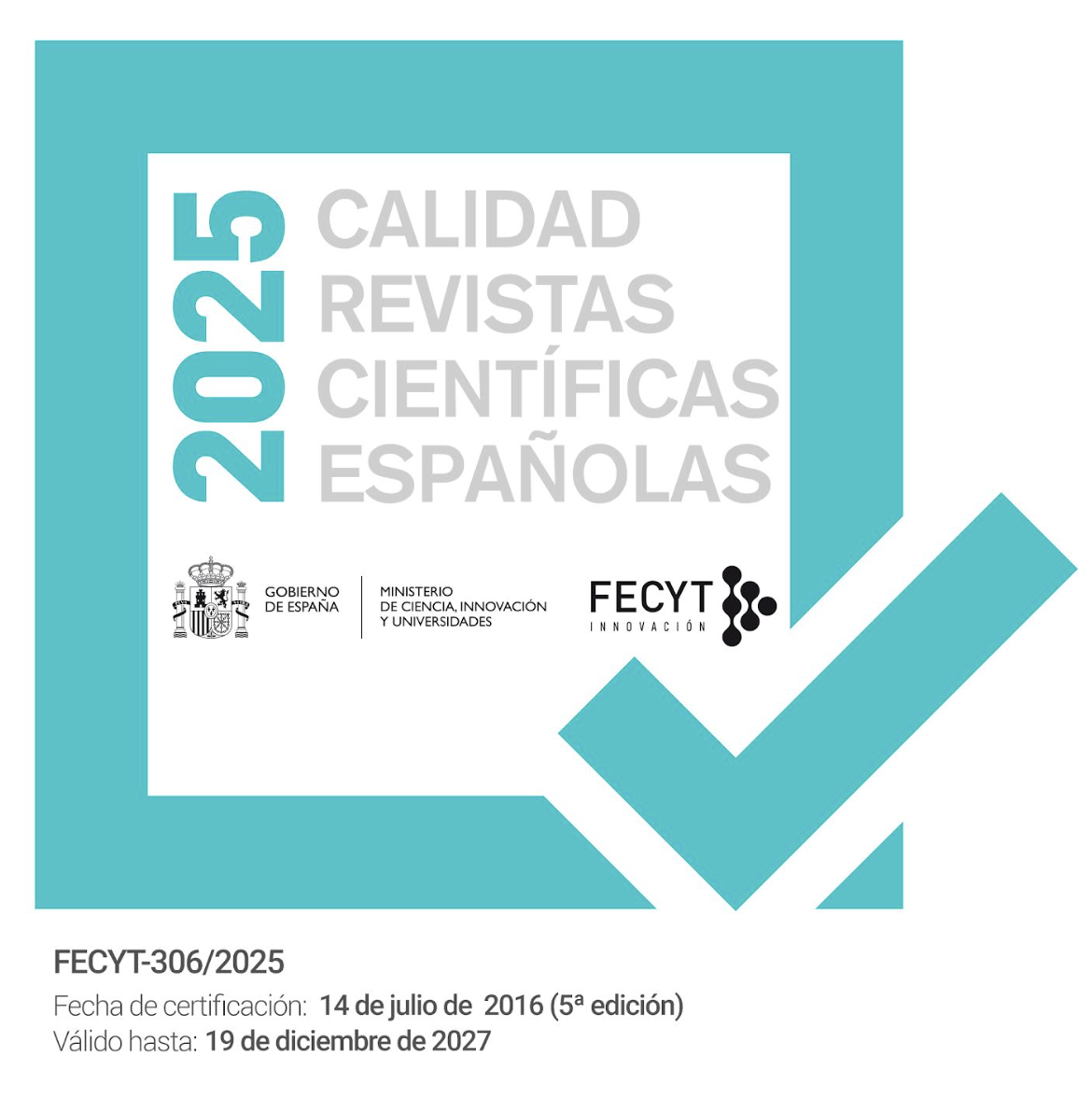Denialist and anti-vaccination profiles among the Spanish population
DOI:
https://doi.org/10.22325/fes/res.2023.165Keywords:
pandemic, COVID 19, anti-vaccination, coronavirus, denialism, vaccine reluctanceAbstract
This paper focuses its interest on the denialist discourses around the COVID 19 pandemic, paying special attention to the population whose concern for the pandemic is nil or almost nil and those who are reluctant to vaccinate. The specific objective is to quantify and characterize the group that subscribes to these discourses, identifying their sociodemographic characteristics to put them in relation to the bases on which they articulate their argumentation. To achieve this objective, we propose a methodological triangulation exercise, combining primary and secondary data that are analysed with quantitative research techniques. The primary data is obtained from an survey, carried out on a sample of the adult Spanish population. The secondary data comes from various sources of information, mainly the CIS barometers, and these secondary data are complemented by those from other studies such as the one promoted by the FECyT, on attitudes towards vaccination, carried out in June 2020, or the study to monitor the behaviour of the population in the face of the pandemic launched by the WHO.
References
Agüera Zapatero, M. J. (2020). ¿Miedo o Ira? Emociones y discurso político ante la pandemia de la COVID-19 [Tesis de pregrado]. Universidad Loyola.
Antiel, R. M., Feltis, B., Balch, C. M., Perry, R. R., Satele, D., Moir, C., & Shanafelt, T. (2014). Professional Burnout, Career Satisfaction, and Wellness Practices - a National Survey of Pediatric Surgeons. 2014 American Academy of Pediatrics National Conference and Exhibition.
Baigorri, A., y Caballero, M. (2018). Negacionismo, políticas demoscópicas y currículum de fracasos. El caso del cambio climático en España. Aposta. Revista de Ciencias Sociales, (77), 8-58. http://www.apostadigital.com/revistav3/hemeroteca/mcg2.pdf
Bisquerra, R., y Pérez-Escoda, N. (2015). ¿Pueden las escalas Likert aumentar en sensibilidad?. Reire, 8(2), 129-147. https://doi.org/10.1344/reire2015.8.2.828
Caponi, S. (2020). Covid-19 no Brasil: entre o negacionismo e a razão neoliberal. Estudos Avançados, 34(99), 209-224. https://doi.org/10.1590/s0103-4014.2020.3499.013
CIS. Barómetros. https://www.cis.es/cis/opencm/ES/11_barometros/index.jsp
Erfani, A., Shahriarirad, R., Ranjbar, K., Mirahmadizadeh, A., & Moghadami, M. (2020). Knowledge, attitude and practice toward the novel coronavirus (COVID-19) outbreak: a population-based survey in Iran. Bulletin of the World Health Organization, 30(10.2471). https://doi.org/10.2471/BLT.20.256651
Goldthorpe, J. (1982). Introducción a la Sociología. Alianza Editorial. Madrid
Herrera-Peco, I., Jiménez-Gómez, B., Romero Magdalena, C. S., Deudero, J. J., García-Puente, M., Benítez De Gracia, E., & Ruiz Núñez, C. (2021). Antivaccine movement and COVID-19 negationism: A content analysis of spanish-written messages on Twitter. Vaccines, 9(6), 656. https://doi.org/10.3390/vaccines9060656
Hornsey, M., Lobera, J., & Díaz-Catalán, C. (2020). Vaccine hesitancy is strongly associated with distrust of conventional medicine, and only weakly associated with trust in alternative medicine. Social Science & Medicine, 255, 113019. https://doi.org/10.1016/j.socscimed.2020.113019
Hornsey, M. J., Edwards, M., Lobera, J., Díaz‐Catalán, C., & Barlow, F. K. (2021). Resolving the small‐pockets problem helps clarify the role of education and political ideology in shaping vaccine scepticism. British Journal of Psychology, 112(4), 992-1011. https://doi.org/10.1111/bjop.12500
Hussain, A., Ali, S., Ahmed, M., & Hussain, S. (2018). The Anti-vaccination Movement: A Regression in Modern Medicine. Cureus 10(7), e2919. https://doi.org/10.7759/cureus.2919
Kunh, T. S. (1962). La estructura de las revoluciones científicas. Madrid: Fondo de Cultura Económica.
Lobera, J., Hornsey, M., y Díaz-Catalán, C. (2019). Los factores que influyen en la reticencia a la vacunación en España. En J. Lobera, y C. Torres (Eds.), Percepción social de la ciencia y la tecnología (pp. 13-35). Madrid: FECYT.
Lobera, J., y Torres, C. (2021). La comunicación de la tecnociencia en tiempos de pandemia. En Sociología en tiempos de pandemia: impactos y desafíos sociales de la crisis del COVID-19 (pp. 53-64). Ediciones Jurídicas y Sociales.
Lozano, L. M., García-Cueto, E., & Muñiz, J. (2008). Effect of the number of response categories on the reliability and validity of rating scales. Methodology, 4(2), 73-79. https://doi.org/10.1027/1614-2241.4.2.73
Mertens, G., Gerritsen, L., Duijndam, S., Salemink, E., & Engelhard, I. M. (2020). Fear of the coronavirus (COVID-19): Predictors in an online study conducted in March 2020. Journal of Anxiety Disorders, 74, 102258. https://doi.org/10.1016/j.janxdis.2020.102258
Organisation for Economic Co-operation and Development [OECD] (2013). OECD Guidelines on Measuring Subjective Well-being. OECD Publishing. https://doi.org/10.1787/9789264191655-en
Peretti‐Watel, P. (2003). Neutralization theory and the denial of risk: Some evidence from cannabis use among French adolescents. The British Journal of Sociology, 54(1), 21-42. https://doi.org/10.1080/0007131032000045888
Popper, K. (1962). La lógica de la investigación científica. Madrid: Tecnos.
Salaverría, R., Buslón, N., López-Pan, F., León, B., López-Goñi, Ignacio; Erviti, María-Carmen (2020). “Desinformación en tiempos de pandemia: tipología de los bulos sobre la Covid-19”. El profesional de la información, v. 29, n. 3, e290315. https://doi.org/10.3145/epi.2020.may.15
Sánchez Carlessi, H. H., Reyes Romero, C., y Matos, P. (2020). Comportamientos psicosociales desajustados, como indicadores de salud mental de la población peruana, en el contexto de la presencia de Covid-19. En H. H. Sánchez Carlessi, y K. B. Mejía Sáenz (Eds.), Investigaciones en salud mental en condiciones de pandemia de Covid-19 (pp 13-40). Santiago de Surco, Perú: Universidad Ricardo Palma.
Santana-López, B. N., Santana-Padilla, Y. G., Martín-Santana, J. D., Santana-Cabrera, L., & Rodríguez, C. E. (2019). Creencias y actitudes de trabajadores sanitarios y estudiantes de enfermería de una región de España ante una pandemia de gripe. Revista Peruana de Medicina Experimental y Salud Publica, 36(3), 481-486. https://doi.org/10.17843/rpmesp.2019.363.4371
Soldevilla, P., Palma, D., Hernández, A., y Rius, C. (2021). Vacuna antiCOVID-19. La otra cara del espejo: la opinión de 5 expertos en vacunas frente a la actitud de los negacionistas y de los antivacunas. Enfermedades Emergentes, 20(11), 20-24.
Sykes, G. M., & Matza, D. (1957). Techniques of neutralization: A theory of delinquency. American sociological review, 22(6), 664-670. https://doi.org/10.2307/2089195
Valenti, V. E., & da Silva, A. P. (2021). O efeito do negacionismo na saúde pública. Journal of Human Growth and Development, 31(2), 189-191. https://doi.org/10.36311/jhgd.v31.12299.
Van Mulukom, V., Pummerer, L. J., Alper, S., Bai, H., Čavojová, V., Farias, J., Kay, C. S., Lazarevic, L. B., Lobato, E. J. C., Marinthe, G., Banai, I. P., Šrol, J., & Žeželj, I. (2022). Antecedents and consequences of Covid-19 conspiracy beliefs: A systematic review. Social Science & Medicine, 301, 114912. https://doi.org/10.1016/j.socscimed.2022.114912
Published
How to Cite
Issue
Section
License
Copyright (c) 2023 María José López Rey

This work is licensed under a Creative Commons Attribution-NonCommercial 4.0 International License.
• The transfer of the copyright of the article to Revista Española de Sociología.
• The assignment to the Revista Española de Sociología of the rights of commercial exploitation of the article to third parties both in the offset and digital formats, as well as to the search engines and platforms that may serve as intermediaries for the sale or knowledge of the article.




